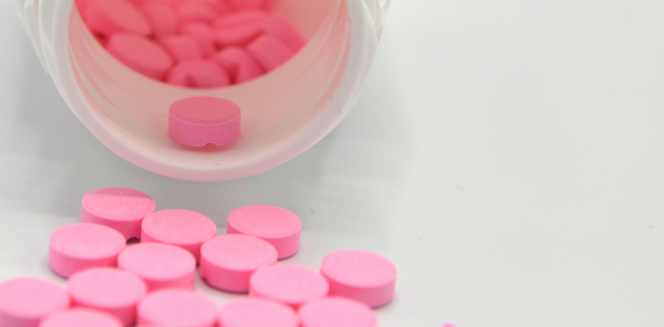Anticoagulant Drugs to be the Finest Remedy for Blood Clotting

14 Nov
2019
Anticoagulant Drugs to be the Finest Remedy for Blood Clotting
Anticoagulants and antiplatelets or blood thinners are drugs that eliminate the risk of blood clots that form in blood vessels or heart. These clots are harmful and can block blood circulation in the body, resulting in heart attacks and strokes. However, the working process of both anticoagulation and antiplatelets differs. On one hand, antiplatelets interfere with the emerging process of blood clots, on the other hand, anticoagulants interfere with factors that are involved in the process of coagulation. Doctors recommend anticoagulation and antiplatelet drugs in medical conditions such as atrial fibrillation, deep vein thrombosis (DVT), myocardial infarction, pulmonary embolism, stroke, and others.
Every medication has its effects and side effects, depending on the suitability of the amount of dosage. Doctors prescribe anticoagulants only when there is an increased chance of developing blood clots. According to a report published by Allied Market Research, the anticoagulant market is estimated to garner $43.42 billion at a CAGR of 7.5% from 2018 to 2025. Factors such as a rise in prevalence of venous thromboembolism (VTE) and cardiovascular disorders, rapid adoption of new oral anticoagulants (NOACS), and rise in awareness of NOACs in the emerging economies have propelled the adoption and recommendation of anticoagulation drugs.
While cutting a blood vessel, the affected tissues near the wound immediately lead the platelets to be sticky and bunch in a group. The stimulated platelets and damaged tissues eject chemicals that get reacted with factors. The chemical reactions turn factor into solid proteins that trap the blood cells and platelets to form a solid clot. However, to balance, there are chemicals present in the blood that prevent and dissolve the clots. Though the formation of blood clots requires a vessel to be damaged, sometimes clot formation takes place even when the blood vessel is not damaged. Furthermore, anticoagulants work against vitamin K that promotes blood clotting by increasing the time it takes to make fibrin.
Several serious conditions that require the dosage of the anticoagulant:
- Pulmonary embolism: This occurs due to the blockage of one of the blood vessels that supply blood to the lungs.
- Deep vein thrombosis: This usually occurs in legs, when a blood clot forms in one of the deep veins.
- Strokes: In this condition, a blood clot restricts the blood to reach the brain, initiating the blood cells to die resulting in perpetual brain damage or death.
- Transient ischaemic attacks (TIAs): It is also known as “mini-stroke” as it has similar symptoms like strokes.
- Heart attacks: Due to the blood clot, the blood vessel stops supplying blood to your heart, decreasing the level of oxygen, resulting in chest pain and sometimes death.
- Atrial fibrillation: The blood clot in the upper chambers of the heart leads to block the flow of blood, resulting in irregular heartbeats, and other heart complications.
Anticoagulants in the above conditions treat the blood clots from getting bigger. However, the intake of anticoagulants depends upon the type of condition including long term conditions and shorter periods. On the other hand, anticoagulants cannot be used like any other medication, several conditions need to be considered before using them. The anticoagulants can be both taken orally or through injection. The most commonly prescribed anticoagulant is Warfarin. However, there are few newer anticoagulants including rivaroxaban, dabigatran, apixaban, edoxaban, and heparin. Warfarin is the oldest anticoagulant drug various other alternative drugs have been invented as its alternative. The newer drugs have made it easier for the patients to lessen the regular checkup visits to the doctors.
Warfarin and new anticoagulants to cure blood clotting:
A study has found that the newer coagulant drugs are better, beneficial and less risky than the older warfarin. The researchers at the University of Nottingham in association with the National Institute of Health Research investigated the benefits and risks with the older warfarin and most common newer drugs known as direct oral anticoagulants (DOACs) including dabigatran, rivaroxaban, and apixaban. Furthermore, the researchers found that apixaban is related to a lower risk of major bleeding, especially the brain and gastric bleeds when compared with warfarin. On the other hand, dabigatran is noticed to lower the risk of a brain bleed in patients with atrial fibrillation whereas rivaroxaban in patients without atrial fibrillation. Furthermore, rivaroxaban and low dose apixaban are related to increased risk of deaths from any cause on patients in comparison with warfarin. According to the researchers, apixaban has lower risks of major bleeding and it is the safest drug.
Anticoagulants with consideration:
The doctors, before prescribing anticoagulants needs to have concerns regarding other medical conditions. However, it is important to inform your doctor about other treatments you are going through. Following are some of the medical conditions that require to be considered before taking anticoagulants:
- Pregnancy: Anticoagulant is avoided during pregnancy, as it can affect the fetus. It may cause excessive bleeding from the uterus. However, it may sometimes be advised in the second trimester.
- Having surgery: Anticoagulants reduces the ability of blood to form a clot, which increases bleeding in cuts during surgery procedures.
- Other medications: While intaking anticoagulants, the intake of other medications is required to be concerned with the doctor. Some medications can either disturb anticoagulants or increase their effect, which can prove to be risky.
- Food diet: The food item considers vitamin K can interfere with the working of warfarin therefore, the patient is required to have a diet recommended by the doctor.
- Avoid other injuries: Be careful while cutting an object and playing outdoor games. Use insect repellent to avoid insect sting as well.
The use of anticoagulants is subtle and requires a lot of consideration. On the other hand, blood thinners have several side effects as well. Excessive bleeding in the form of heavy periods, blood in urine or feces, nosebleeds, bleeding gums, and prolong bleeding from wounds and cuts are the the major side effects of anticoagulants. Other than this, the patient may suffer from diarrhea, dizziness, indigestion, headaches, sickness, itchiness, hair loss, and jaundice. However, anticoagulants provide excellent health if used as prescribed.

Rosy Behera
Author's Bio- Rosy Behera holds a bachelor’s degree in Electrical and Electronics Engineering and now she is a content writer by profession. She loves to portray her thoughts and ideas with a nice command of words. Grabbing an audience with her creative write-ups is one of her biggest assets so far. Apart from writing, she is a certified “Odisi” dancer and has done Gardharva in Drawing, Painting, and Arts. She always explores new things through travel and is a big foodie.
Avenue: Entire Library membership of Allied Market Research Reports at your disposal
- Avenue is an innovative subscription-based online report database.
- Avail an online access to the entire library of syndicated reports on more than 2,000 niche industries and company profiles on more than 12,000 firms across 11 domains.
- A cost-effective model tailored for entrepreneurs, investors, and students & researchers at universities.
- Request customizations, suggest new reports, and avail analyst support as per your requirements.
- Get an access to the library of reports at any time from any device and anywhere.
Related Post
-
How are Submarine Cables Transforming Global Connectivity with Enhanced User Experience?
-
Endoscopy Procedures: Transformations in Techniques and Applications
-
AI-Powered Video Analytics: How the Product Actually Works for enterprises
-
Painting Robots: Transforming Precision Coating and Creative Applications
-
Innovations in Pharmacovigilance Systems Advancing Patient Safety
-
Understanding Edge Security: Keeping Data Safe Near the Source
-
Exploring the Use and Advancements of 3D Laser Scanners in Professional Applications
-
Reinforcing Industrial Controls with Smarter Tools and Training








